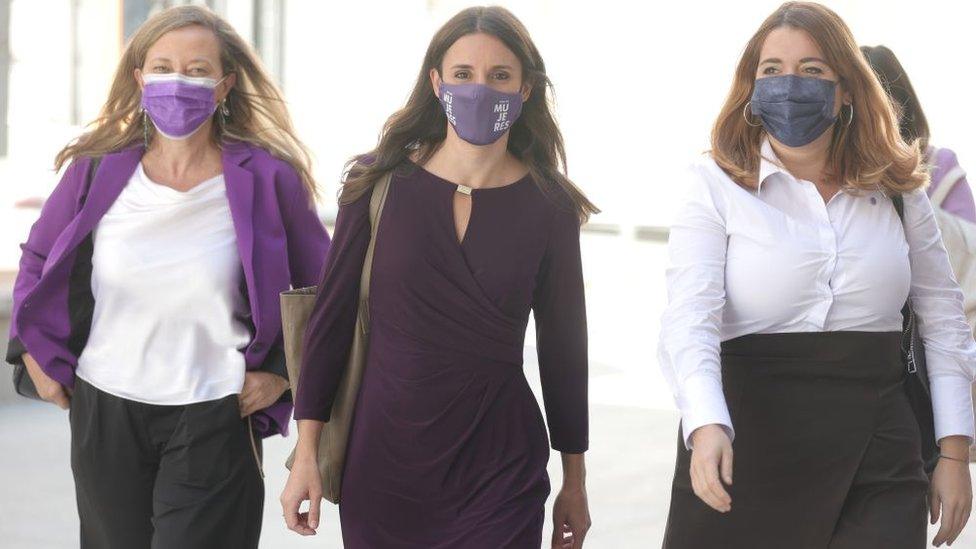Rape victim: It felt like I was being investigated when I reported my assault
- Published
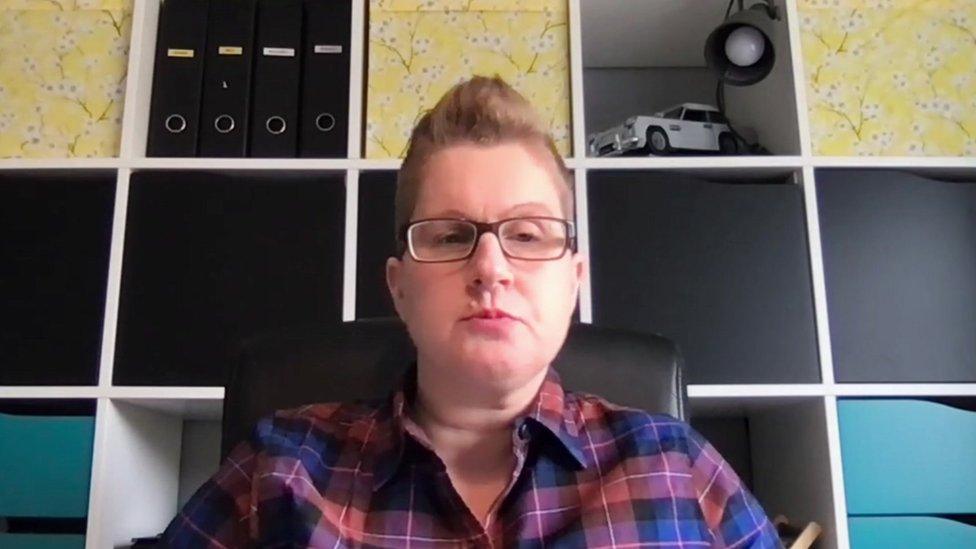
Sarah Jenkin says the process of reporting her rape was "such a violation"
"It felt as though I was the one being investigated," a woman who took a rape complaint to the police has said.
Sarah Jenkin said police asked for consent to access all her medical and social records, and her mobile phone.
For the case to go ahead, "you are just stripped right down", she said.
Calls are now being made for police and prosecutors to stop collecting so much data from rape victims. The government says it has bolstered the law on requesting digital data.
The CPS says prosecutors and investigators are asked to "carefully consider" when to seek a victim's data, and requests must be "specific and only sought when necessary".
John Edwards, who leads the Information Commissioner's Office - the regulator set up to uphold rights and rules over information and data, said many victims were being treated like "suspects".
A new report highlights that survivors are often asked for their medical records, social services files and in some cases, school files - in what it calls a "digital strip-search".
Ms Jenkin, whose rape complaint did not make it to trial, said the process had left her feeling "very raw and vulnerable".
"Looking back on it, it is such a violation. It felt as though I was the one that was being investigated, I was the one on trial.
"I didn't know what to expect... and it became clear quite quickly that a lot of information would be required that didn't make sense to me."
"At the time, I was very overwhelmed", but in hindsight Ms Jenkin, who has waived her right to anonymity, questioned: "What relevance have my social care records got to the fact I've reported an assault?
"If I were to report a burglary, I doubt very much that this level of data would be required from me - I would be believed and it would be investigated."
During the investigation, Ms Jenkin said she was told it was "standard practice" and "the implication is that if you don't agree to this, the case will not proceed".
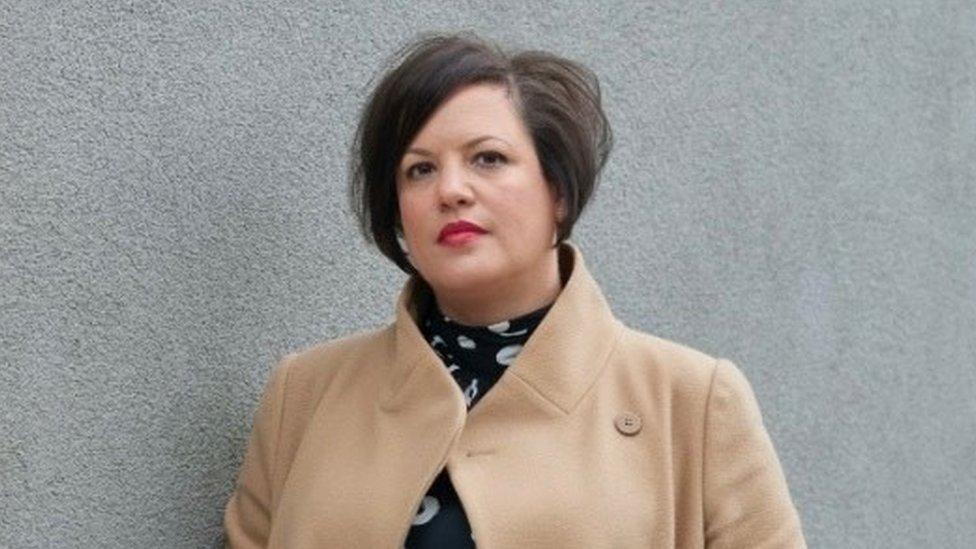
Katherine Araniello said it was "horrendous" having her phone taken away
When Katherine Araniello brought a rape complaint to the police, she was asked for her mobile phone, her work mobile, medical records and information from her therapist.
"I found that part of the investigation extremely difficult - coming to terms with the fact that all of my personal data was being harvested," said Ms Araniello, who has also waived her right to anonymity.
She said she was left having to explain to work colleagues why she could not use her phone.
"Trying to deal with something discreetly in your life then forces that issue out.
"It's not just inconvenient, it's horrendous to have that contact taken away from you."
Ms Araniello's rape complaint was dropped by the Crown Prosecution Service (CPS) days before the case was due in court.
She said that during the "intrusive" process there were personal things in her medical record that she did not want an investigating officer asking for.
"It's not just things that are relevant to the case, it's everything.
"Everything is scrutinised and I didn't feel comfortable with that amount of information no longer being under the security of my GP."
Ms Araniello said an understanding of what was relevant to the case and communication about what information was being taken would help victims reporting sexual assault.
Mr Edwards said such intrusive practices in the aftermath of a life-changing attack meant it was no surprise that victims withdrew from the legal process.
That, in turn, was resulting in very low conviction rates for serious sexual offences, he suggested.
Conviction rates for rape are already low - something the UK government has said it is "deeply ashamed" about.
Victims of sexual crimes are often put under pressure to hand over their phones, which is voluntary, and can be told the case will be closed if they do not comply.
Requests must be specific
Last summer, the government announced in its Rape Review, external that any digital material requested from a victim would be limited to what was "necessary and proportionate".
The Home Office pointed to this law change, and said it had given £5m of funding to 24 police forces for new technology to make sure no adult rape victim is left without a phone for over 24 hours.
A public consultation looking at police requests for personal information will be launched shortly and law requires authorities to inform a victim in writing about why their information is sought, it said.
The report, led by Mr Edwards, asks police leaders to stop all forces using forms which indicate broad, general consent to obtain data from a victim.
In response, the National Police Chiefs' Council says it has already begun work to improve forces' response to rape victims.
But one charity says neither the commissioner nor the CPS have gone far enough.
The Centre for Women's Justice says guidance is needed to advise police and prosecutors that they should not be "seeking to trawl rape survivors' personal data looking for anything that may undermine their credibility".

Have you been affected by the issues raised in this story? You can get in touch by emailing haveyoursay@bbc.co.uk, external.
Please include a contact number if you are willing to speak to a BBC journalist. You can remain anonymous if you wish. You can also get in touch in the following ways:
WhatsApp: +44 7756 165803, external
Tweet: @BBC_HaveYourSay, external
Or fill out the form below
Please read our terms & conditions and privacy policy
If you are reading this page and can't see the form you will need to visit the mobile version of the BBC website to submit your question or comment or you can email us at HaveYourSay@bbc.co.uk, external. Please include your name, age and location with any submission.


FROM MUSICIAN TO RESTAURANTEUR: How to turn your passion for food into a business
'IT'S NOT A FLAW, IT'S A GIFT': The quiet power of introverts

- Published27 May 2022
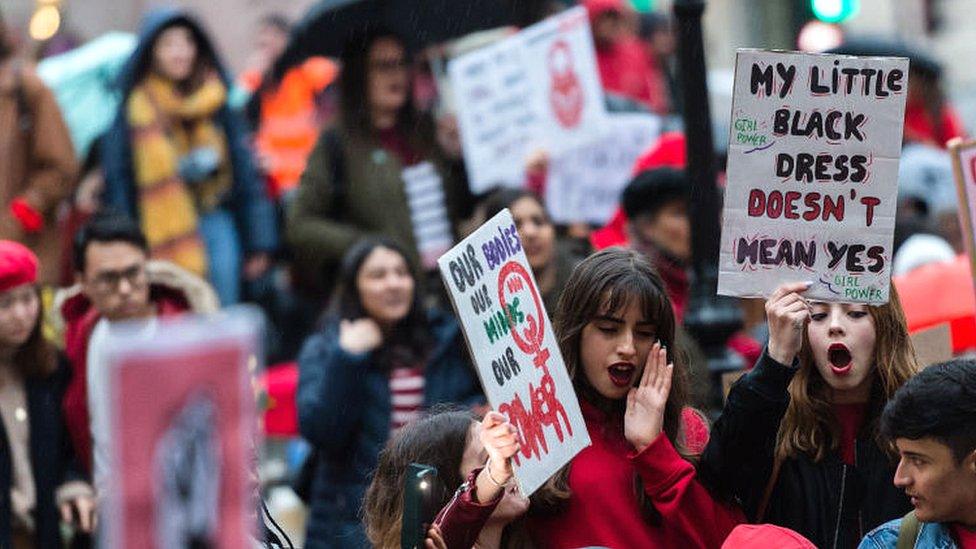
- Published26 May 2022
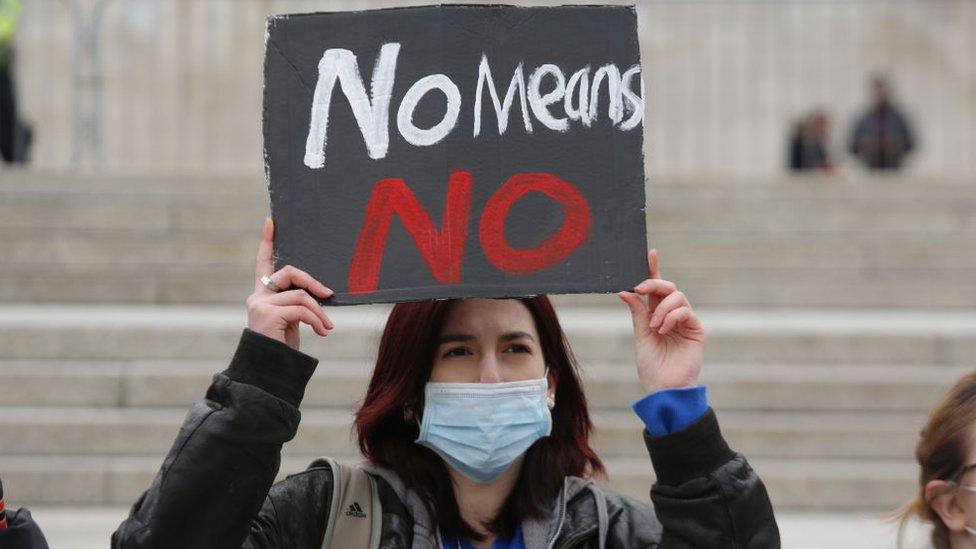
- Published6 July 2021

- Published30 May 2022

- Published26 May 2022
